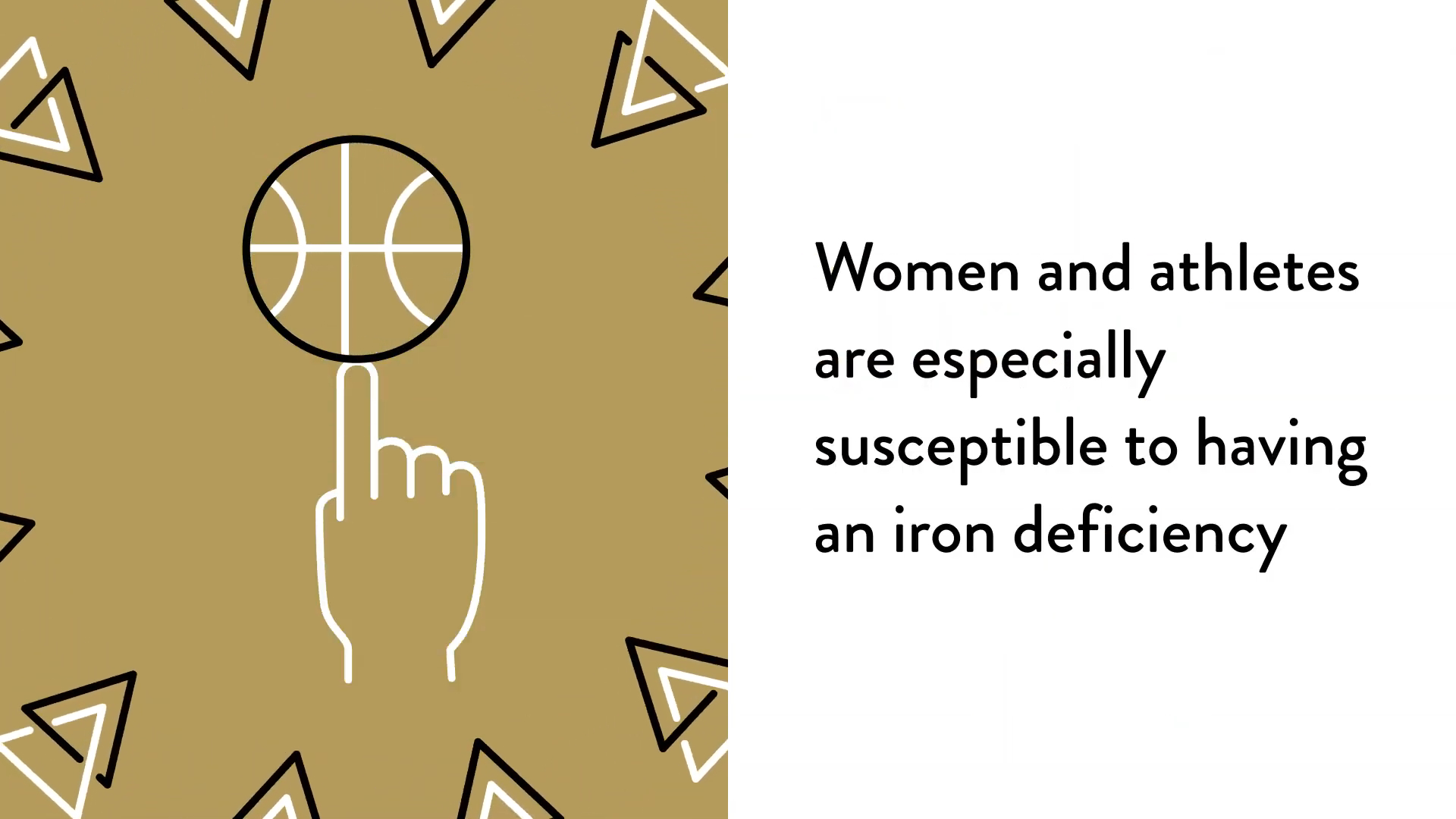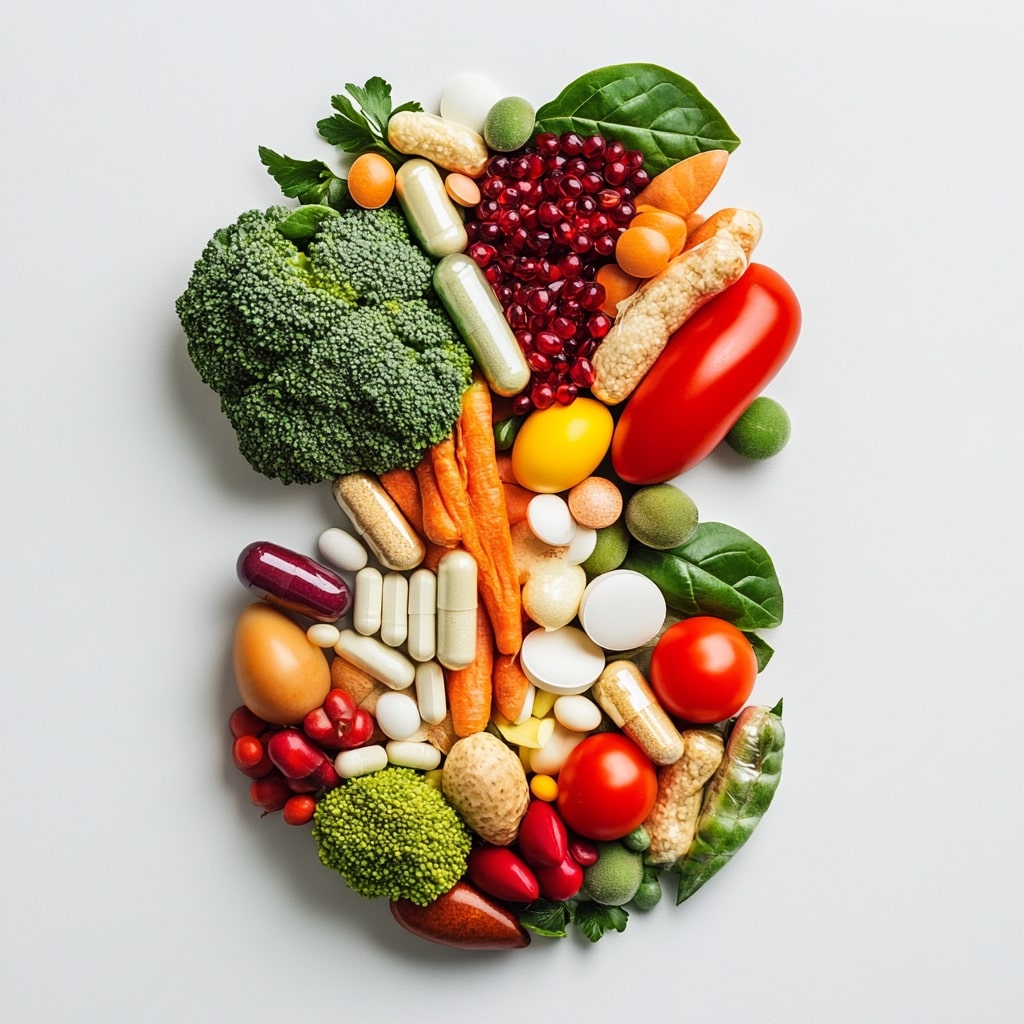Anemia is a condition marked by a deficiency of red blood cells or hemoglobin, which impairs the blood’s ability to carry oxygen throughout the body. Iron deficiency remains the most common cause of anemia, especially among:
- Women
- Children
- Elderlyfyi
Traditional iron supplements are widely used, but they often come with unpleasant side effects.
Enter iron bisglycinate, a newer form of iron supplement that promises better absorption and fewer side effects.
Benefits of Using Iron Bisglycinate for Anemia

- Higher bioavailability
- Improved tolerance
- Effectiveness in at-risk populations
Higher Bioavailability
Iron bisglycinate stands out for its superior bioavailability compared to traditional iron supplements like ferrous sulfate.
It means that a greater percentage of the iron from the supplement is absorbed into the bloodstream, allowing for more efficient correction of iron deficiencies.
- The bisglycinate form consists of iron bound to glycine, an amino acid. The chelation process improves iron absorption in the intestines by protecting it from the acidic environment of the stomach and digestive enzymes.
- Unlike inorganic iron salts, such as ferrous sulfate, it does not break down into free iron ions that can irritate the intestinal lining. This leads to better absorption and fewer side effects.
- Resistant to Dietary Inhibitors:
- Many plant-based foods like grains, beans, and nuts contain compounds called phytates that can inhibit the absorption of non-heme iron (plant-based iron).
- Studies have shown that iron bisglycinate is less affected by these inhibitors, making it a great option for vegetarians or those whose diets are rich in grains and legumes.
- Unlike other iron supplements, this one doesn’t compete as strongly with other minerals like calcium and zinc for absorption in the gut.
Benefits for Specific Diets
- Vegetarians and Vegans:
- Individuals following plant-based diets often have lower iron stores due to the reduced absorption of non-heme iron.
- Iron bisglycinate’s resistance to dietary inhibitors like phytates ensures better iron levels in these populations.
- High-Fiber Diets:
- Those who consume diets high in fiber may struggle with iron absorption due to the presence of compounds that bind iron.
- It is less susceptible to these effects, ensuring more efficient absorption.
Improved Tolerance
A significant advantage of iron bisglycinate is its reduced impact on the gastrointestinal (GI) system, which is a common issue with traditional iron supplements.
Many individuals discontinue iron therapy due to uncomfortable side effects, but iron bisglycinate offers a more tolerable alternative.
- Traditional iron supplements, like ferrous sulfate, are notorious for causing a range of GI problems, including constipation, nausea, bloating, and stomach cramps. These side effects can make it challenging for patients to adhere to a supplementation routine.
- Iron bisglycinate, in contrast, is much gentler on the stomach. The chelated form of iron binds to the amino acid glycine, allowing it to be absorbed more efficiently and reducing irritation in the gut lining.
- Ideal for Sensitive Systems:
- Suitable for individuals with pre-existing GI conditions like irritable bowel syndrome (IBS) or acid reflux.
- Can be taken on an empty stomach without causing significant discomfort, unlike other iron supplements that require food to reduce side effects.
- Improved Adherence to Treatment:
- The reduced side effect profile of iron bisglycinate makes it easier for patients to stick to their prescribed iron supplementation regimen.
- This is particularly beneficial for pregnant women, children, and the elderly, who may be more sensitive to GI disturbances but still require effective iron supplementation.
A study conducted by AGA, shows us 15 practical examples on how to tackle iron deficiency in the case of anemia.
Effectiveness in At-Risk Populations

- Pregnant women
- Children
- Elderly
These groups often struggle with iron deficiency due to increased needs or decreased absorption capacity, making supplementation essential.
| Population | Key Issues | Benefits of Iron Bisglycinate |
|---|---|---|
| Pregnant Women | High iron needs | Better absorption, fewer side effects |
| Children | Growth issues, picky eaters | Gentle on stomach, boosts energy |
| Elderly Adults | Poor absorption, fatigue | Easy digestion, improves vitality |
Considerations and Potential Side Effects
Now that we know the benefits, we want to discuss potential side effects.
Optimal Dosing

When it comes to iron supplementation, getting the correct dosage is essential for achieving the best results while minimizing potential side effects.
Even though iron bisglycinate is more bioavailable and easier on the stomach than other forms, taking the appropriate amount is still crucial to avoid complications like iron overload or toxicity.
Pregnant Women
Pregnant women have increased iron needs to support fetal development and the expansion of maternal blood volume.
However, overdosing on iron can be harmful, potentially causing oxidative stress or complications like gestational diabetes.
Healthcare providers typically recommend a tailored dosage based on blood tests to ensure that iron levels remain balanced.
For many pregnant women, the recommended daily intake is 27 mg, depending on individual needs.
A study from 2023 shows us that the use of iron supplementation during pregnancy is safe, if overdosing is avoided.
Athletes, Vegetarians, and Others with Higher Requirements
Athletes, particularly endurance runners, are at a higher risk of iron depletion due to increased red blood cell turnover and iron loss through sweating.
Vegetarians and vegans may also struggle to obtain sufficient iron from plant-based diets due to the lower bioavailability of non-heme iron. For these groups, personalized dosing plans are beneficial.
While the typical adult dosage ranges from 18 to 25 mg daily, athletes and vegetarians might require slightly higher amounts, especially during periods of intense training or if they experience symptoms of deficiency like fatigue or dizziness.
Possible Side Effects
Despite its reputation for being gentler on the stomach, iron bisglycinate is not entirely free from potential side effects.
While it is generally better tolerated than traditional iron supplements like ferrous sulfate, some individuals may still encounter issues, especially if they are sensitive to supplements or have existing gastrointestinal (GI) conditions.
Mild Gastrointestinal Discomfort
Although the likelihood is lower, some users may still experience mild symptoms such as stomach cramps, gas, or diarrhea, particularly if taken on an empty stomach.
For those who are particularly sensitive, taking iron bisglycinate with a small amount of food can help alleviate these symptoms without significantly affecting its absorption.
Risk of Iron Overload
While iron bisglycinate is well-absorbed, this can be a double-edged sword.
Excessive iron intake can lead to iron overload, especially in individuals with genetic predispositions like hemochromatosis, where the body accumulates too much iron.
- Fatigue
- Joint pain
- Organ damage
Practical Guidance for Supplementation

Finally, we want to stress some guidance for supplementation.
Choosing the Right Supplement
When it comes to iron supplementation, not all products are created equal, especially when looking for the benefits of iron bisglycinate.
Making an informed choice can significantly impact the effectiveness and safety of your supplementation routine.
Here are some key factors to consider:
Look for “Iron Bisglycinate Chelate” on the Label
Ensure that the supplement specifically lists “iron bisglycinate chelate” as its primary ingredient.
The form is known for its superior bioavailability and reduced gastrointestinal side effects.
Other forms of iron, such as ferrous sulfate or ferrous fumarate, may not offer the same benefits and can cause more GI discomfort.
Check for Third-Party Testing and Certifications
Supplements that are third-party tested provide added assurance of their quality, potency, and purity.
Look for certifications from reputable organizations like NSF, USP, or Informed Choice, which verify that the product is free from contaminants and meets its label claims.
Third-party testing also helps confirm that the supplement is free of heavy metals, which can sometimes be present in lower-quality products.
Avoid Unnecessary Fillers and Additives
Choose supplements with minimal fillers, artificial colors, or preservatives, which can cause adverse reactions, especially for individuals with allergies or sensitivities.
A clean, straightforward ingredient list ensures that you’re getting only what you need.
For those with dietary restrictions or sensitivities, look for products labeled as allergen-free, non-GMO, or gluten-free.
Reading more about other sumplementation is an absolute must to find the combination that serves you the best.
Tips on Integrating Supplementation into a Balanced Diet

Integrating iron bisglycinate supplementation into a balanced diet requires a thoughtful approach to maximize its benefits while minimizing any potential side effects.
Here are some practical tips to help ensure you’re getting the most out of your iron supplement:
Timing Matters
Iron bisglycinate is most effective when taken on an empty stomach because food, especially dairy products, coffee, or high-calcium foods, can reduce its absorption.
For optimal results, take the supplement either one hour before or two hours after a meal.
However, if taking it on an empty stomach causes discomfort, consider having it with a small, non-dairy snack to reduce the risk of nausea or stomach cramps.
For those with particularly sensitive stomachs, taking it right before bedtime can be another option to avoid daytime discomfort.
Pairing with Vitamin C for Enhanced Absorption
One of the easiest ways to boost iron absorption is by pairing iron bisglycinate with Vitamin C-rich foods like oranges, strawberries, bell peppers, or a glass of fresh lemon water.
Vitamin C helps convert iron into a form that the body can absorb more efficiently.
Alternatively, you can look for supplements that already include Vitamin C in their formulation for added convenience.
Avoiding Iron Inhibitors
Certain foods and beverages can inhibit iron absorption, even when using a highly bioavailable form like iron bisglycinate.
Limit consumption of coffee, tea, and dairy products around the time you take your supplement, as they contain compounds like tannins and calcium that can hinder absorption.
High-fiber foods can interfere with the absorption of iron. If you’re following a high-fiber diet, consider spacing out your supplement from meals rich in fiber to ensure optimal iron uptake.
Summary
Iron bisglycinate offers a promising solution for those struggling with anemia, combining high bioavailability with fewer side effects.
Its benefits for various at-risk populations and its compatibility with different diets make it an attractive option for effective anemia management.

